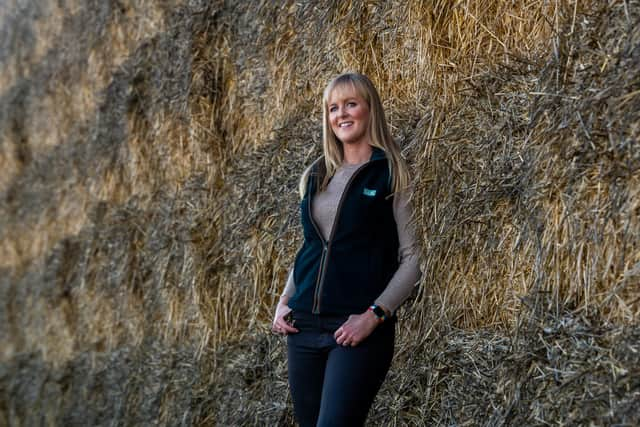What agriculture needs from politicians in 2024 and beyond - Lucinda Douglas
In addition, it will also help the government in hitting their environmental and climate targets. At the same conference, Steve Barclay MP, in his first speech as Defra Secretary of State stressed that the government will always back British farmers and highlighted that farming is a key part of the £127bn food sector.
Of course, farmers and land managers also play a key – if not leading – role in being custodians of the natural environment by delivering on the government's green agenda.
Advertisement
Hide AdAdvertisement
Hide AdThe current Defra budget of £2.4bn in England has been unchanged since 2014. Even using the blunt inflation argument, the budget should be £3.2bn, but the scale of the government’s statutory environmental and climate targets mean that even this figure is insufficient.


Earlier this year, the All-Party Parliamentary Group (APPG) on Rural Business and the Rural Powerhouse published a report ‘The Rural Premium’, funded and researched by the CLA, which explored the impact of the cost of living crisis in rural areas.
The report noted that whilst inflation for consumers was running at around 10 per cent (in the year leading up to publication of the report), agricultural inflation was running at 25 to 30 per cent. The latter is defined as the increase in the price of agricultural inputs and raw materials. The report cites the 350 per cent increase in the cost of fertiliser over a 12 month period as an example.
An increased budget would also help deliver the government’s environmental and climate related targets as contained in the Agriculture Act (2020); Environment Act (2021); and the Climate Change Act (2008). The Agriculture Act explicitly sets out the principle of payment for ‘public goods’ such as delivering positive environmental outcomes to address climate change and biodiversity loss.
Advertisement
Hide AdAdvertisement
Hide AdThe CLA has a long track record of engaging with and leading the debate on actions to tackle climate change, producing the first UK-based carbon accounting tool for land managers (CALM) in 2005. Any government must recognise the importance of landowners in addressing climate change, and also commit to supporting them financially in addressing this issue.
As we transition away from the BPS (basic payment scheme) model of farming support, we are seeing the funding being redirected into schemes such as the Sustainable Farming Incentive (SFI) and Countryside Stewardship. These are fixed term contracts with an obligation for the government to pay farmers in exchange for delivery of environmental actions.
Given the scale of the challenge facing the sector to transition to farming with SFI while aiming to meet changing consumer and market demands, there is a need for a continued funding commitment from the government. This is particularly important given low farming incomes and low returns on capital invested in a time of increased interest rates, alongside increasing regulatory standards and market demands. Profitable and sustainable farming can go hand in hand with delivering public goods such as enhancing the environment and sequestering carbon, but must be backed by the certainty of multi-annual investment by the government and enabling farmers to continue to produce food.
The lion’s share of an increase to the Defra budget would be targeted at the delivery of environmental ‘public’ goods, by farmers and landowners, which will help the government achieve its ambitious environmental and climate targets. The CLA suggests an additional £400m should be ring-fenced to improve domestic farm productivity and to accommodate new entrants to deliver a more resilient farming system in future.
Advertisement
Hide AdAdvertisement
Hide AdFinally, the CLA also supports a further £250m to support woodland creation and management in all its forms, including commercial, amenity and agroforestry. Such a budgetary increase will give all farmers, including the next generation, confidence that the UK Government will back their ambitions for the environment, nature and food production over the long term.
It is in the nature of land managers to come up with solutions, and with proper support, they will be able to demonstrate how profitable farming can deliver for people and the planet.
With a General Election looming next year, it is our hope that candidates of all political persuasions will be explicit in their commitment to our rural economy by rural-proofing their party manifestos, which will answer society’s demands for food production and action on the environment.
Lucinda Douglas is Director North at the CLA.
Comment Guidelines
National World encourages reader discussion on our stories. User feedback, insights and back-and-forth exchanges add a rich layer of context to reporting. Please review our Community Guidelines before commenting.